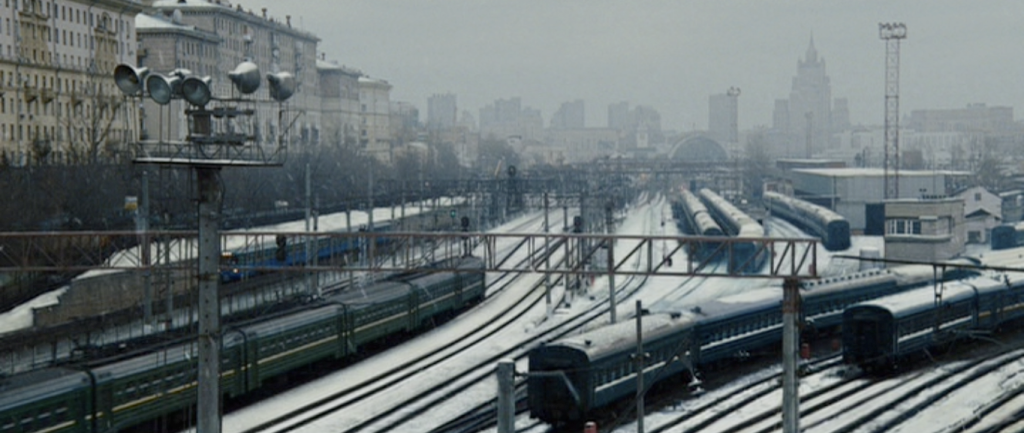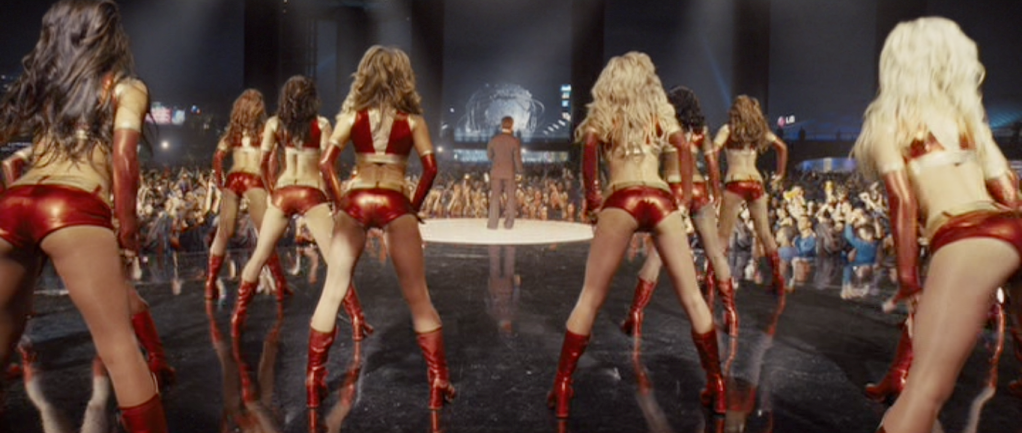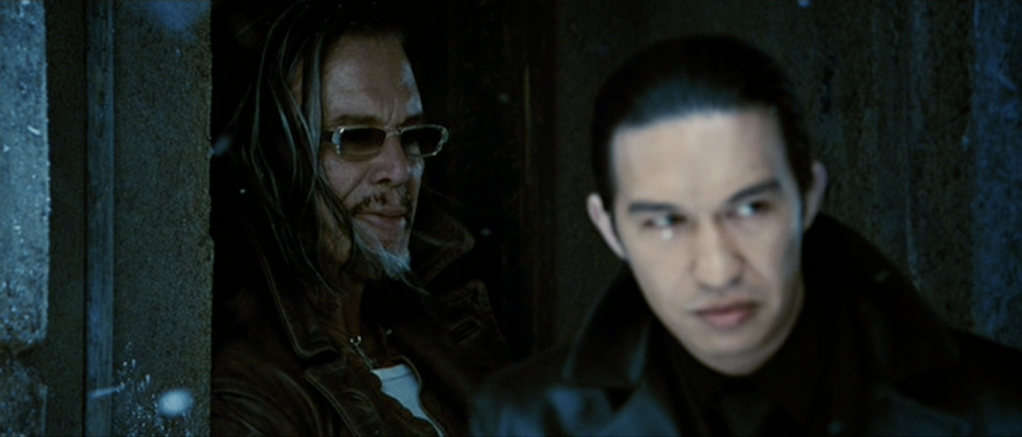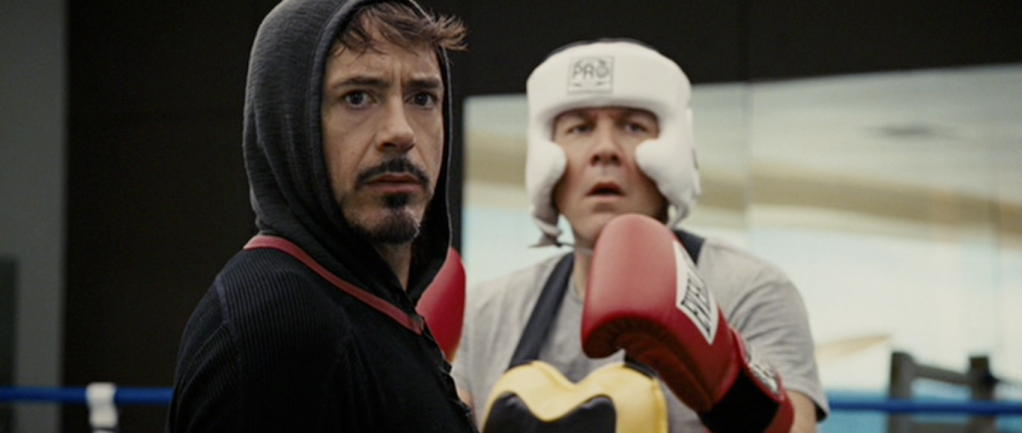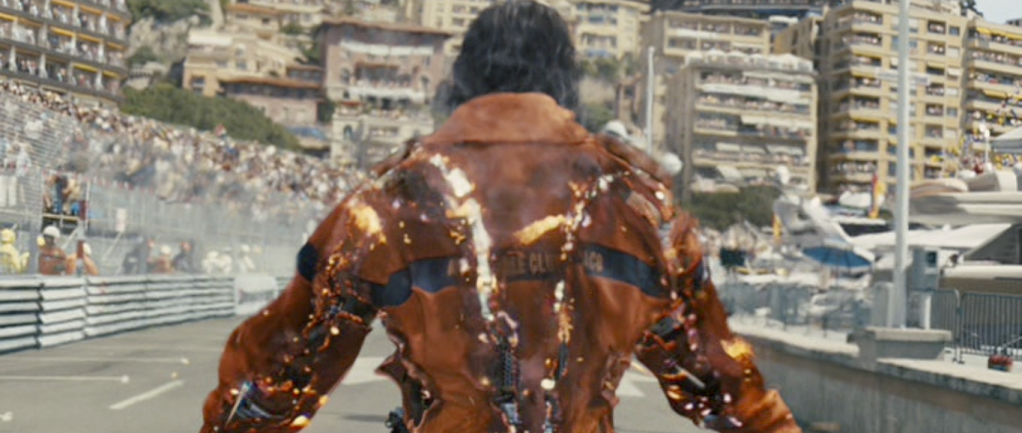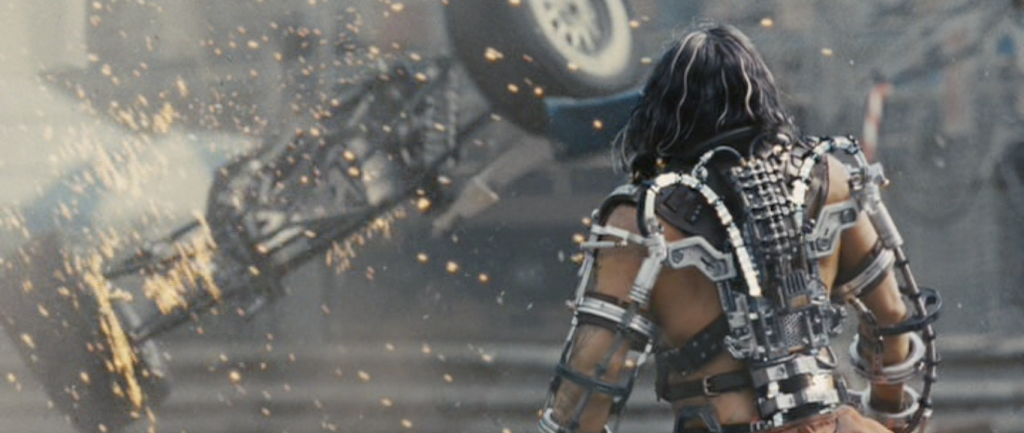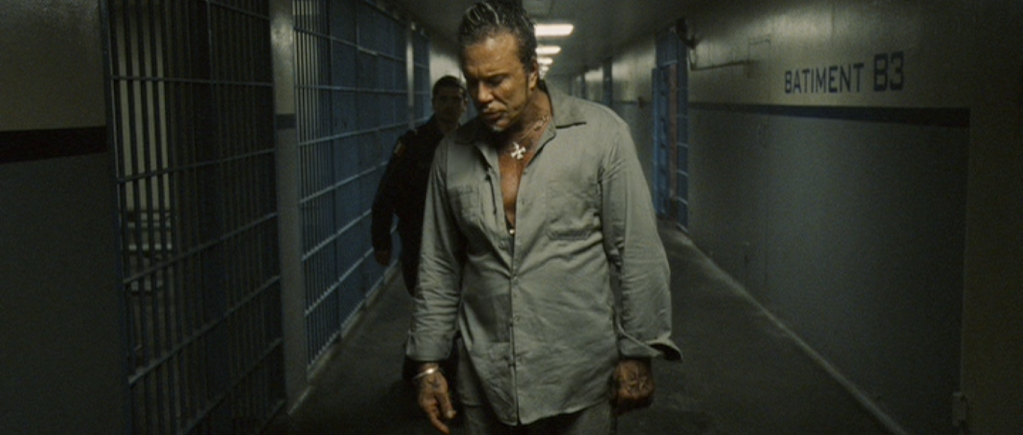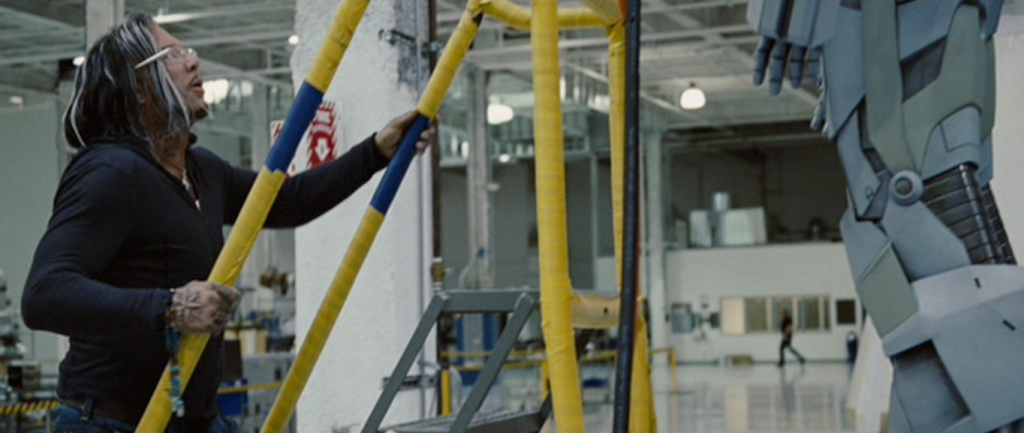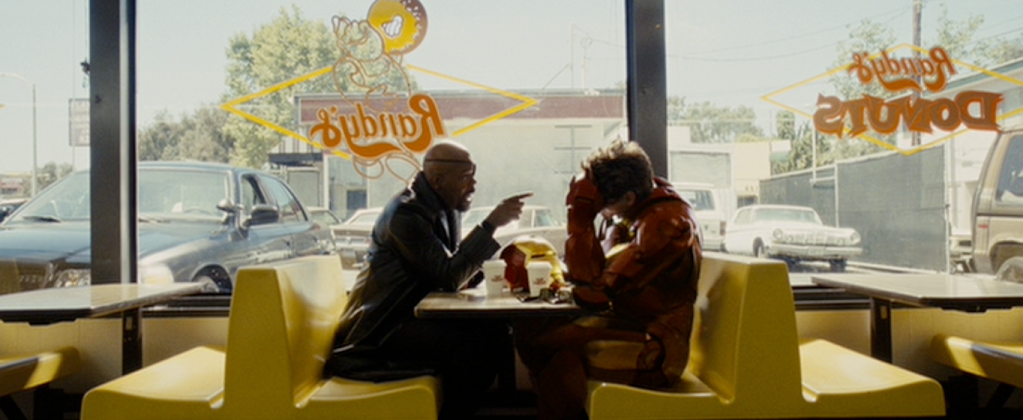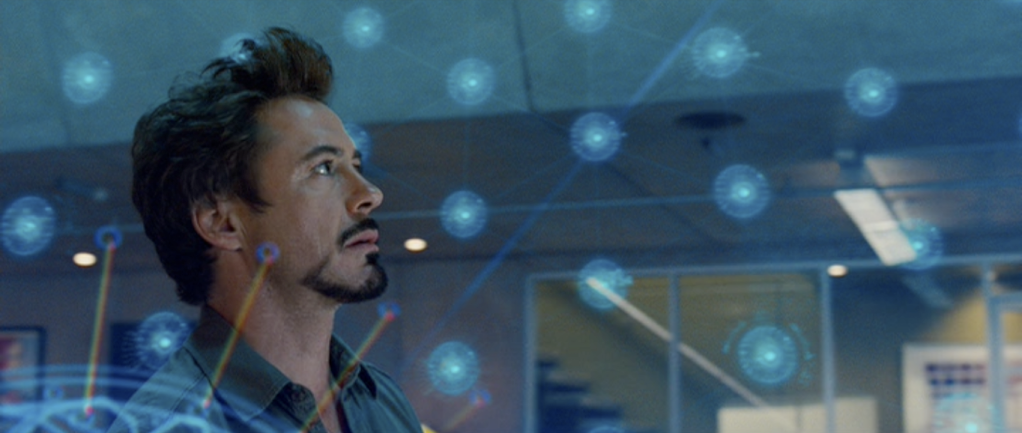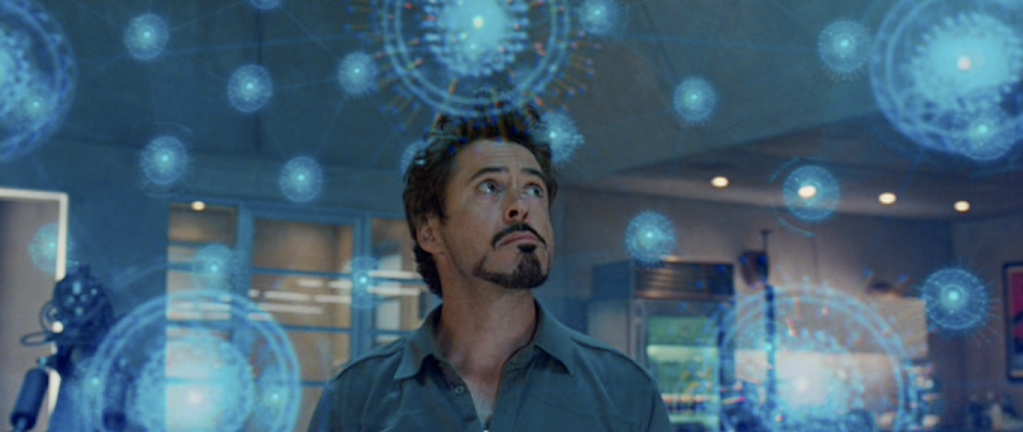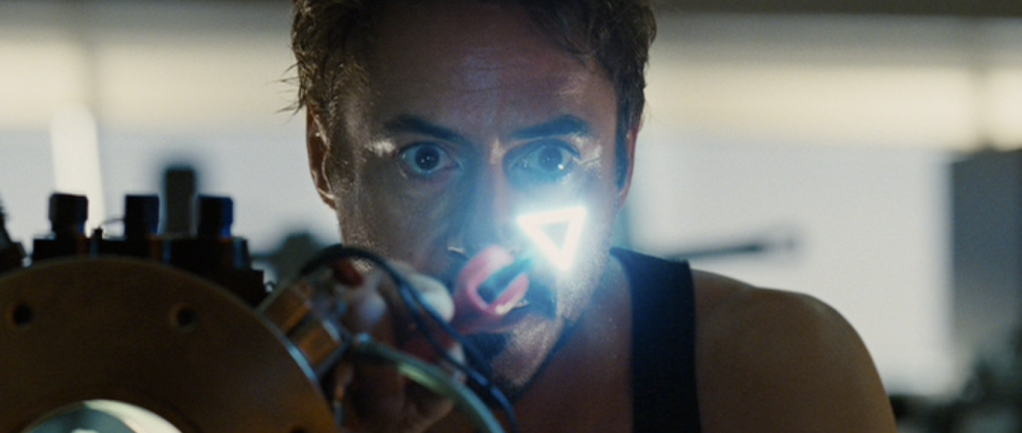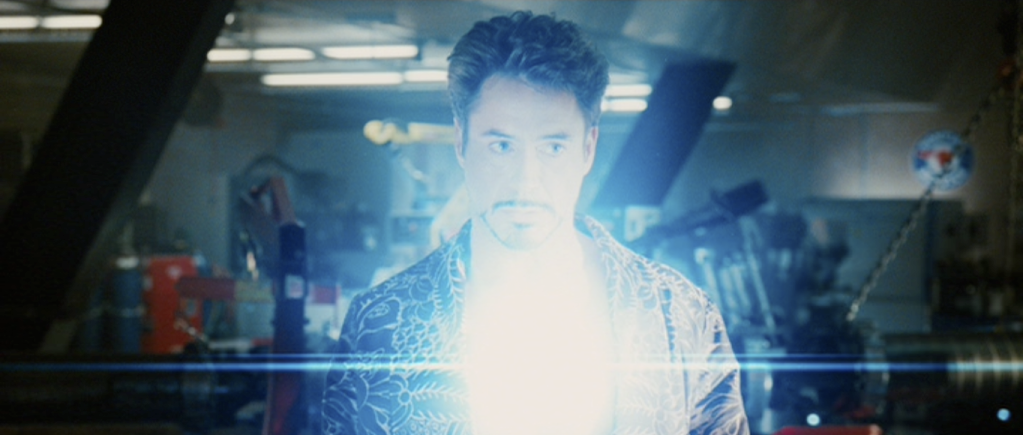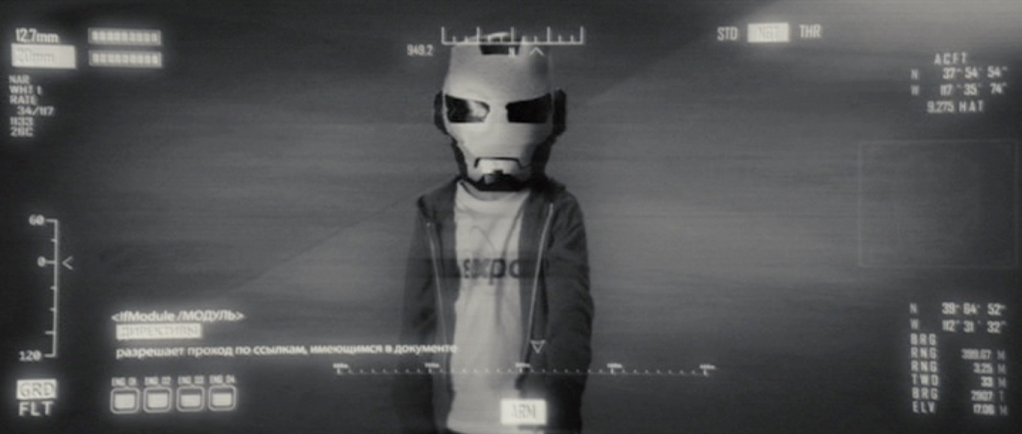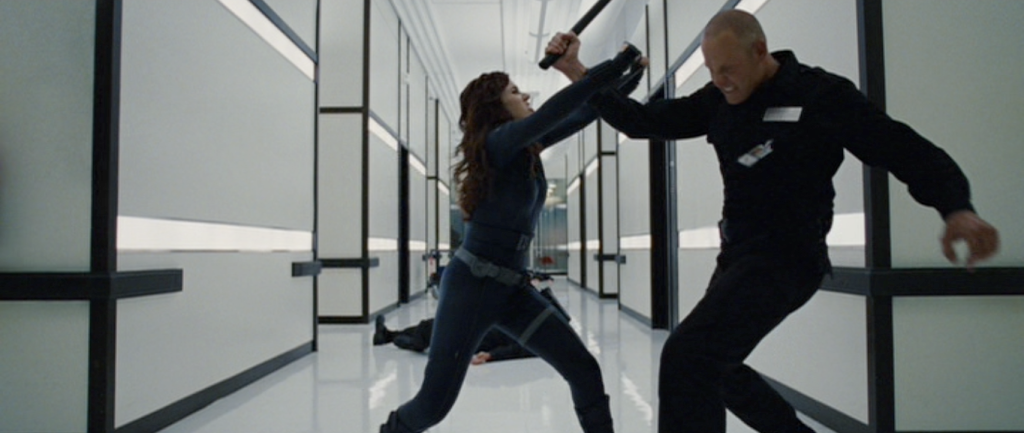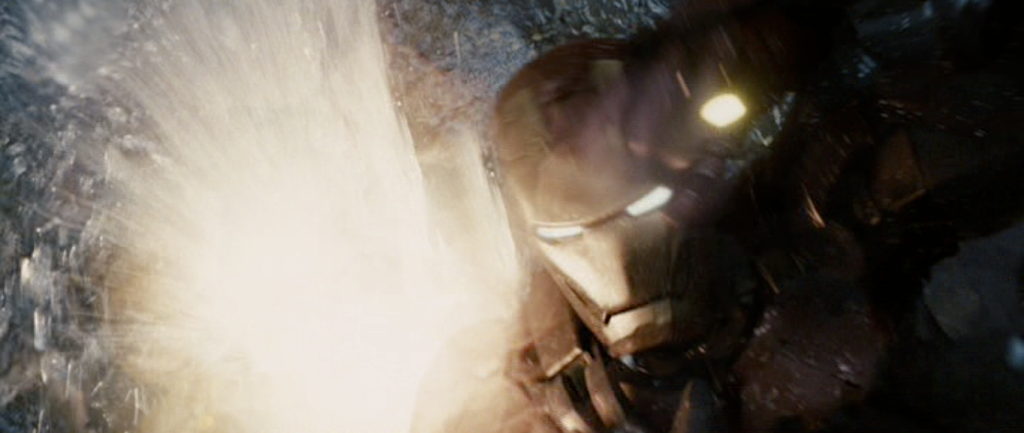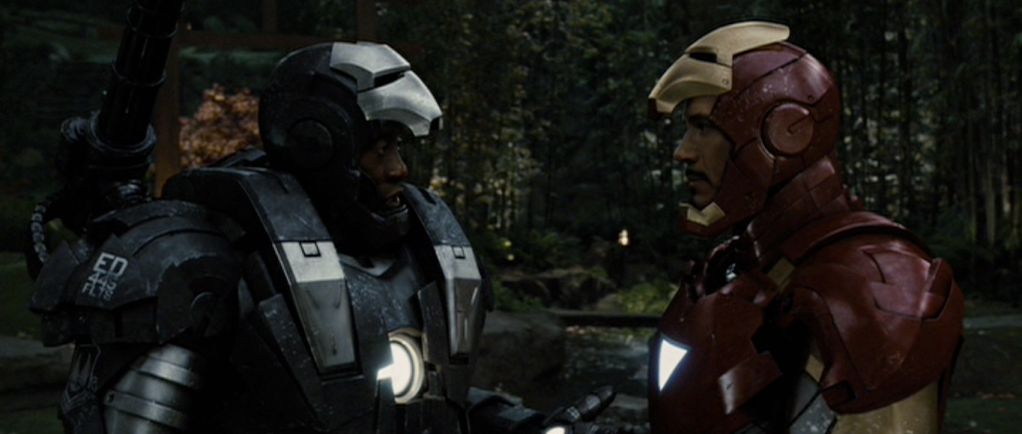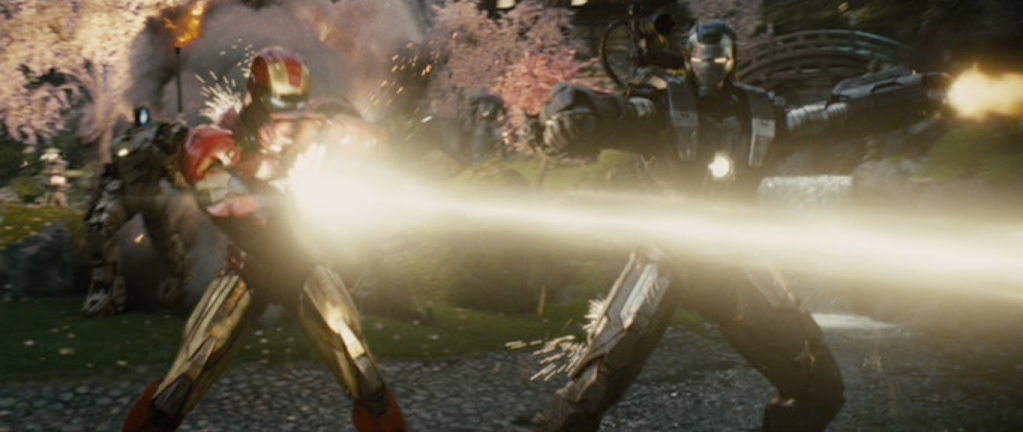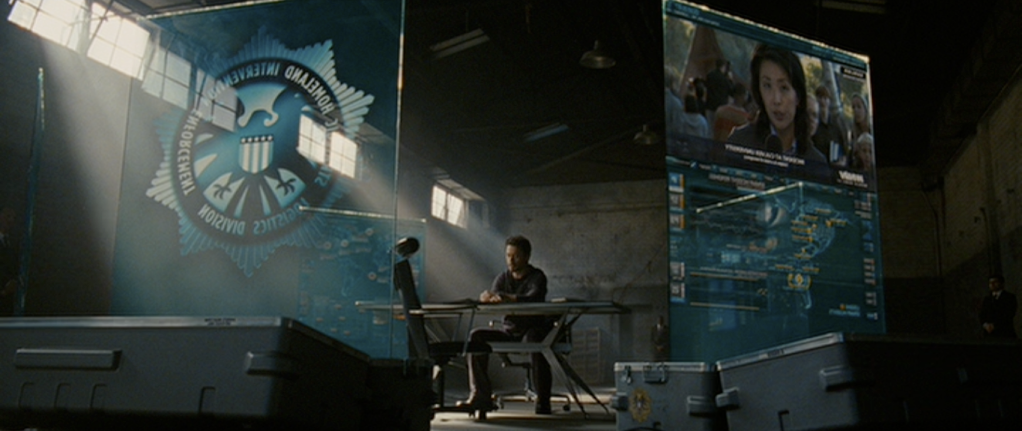Who said there's anything wrong with a little escapism? In the early-to-mid-20th century, alongside cartoons and newsreels, brief vacations from reality ran prior to feature presentations: film serials. Many of these were based upon comic strip characters like Flash Gordon (popularized in celluloid by Universal's 1936 serial) and comic book characters, such as Fawcett's Captain Marvel and Marvel's Captain America (adapted by Republic Pictures in 1941 and 1944, respectively). Later in the century, the comic names would warrant feature presentation and now, in the new millennium, those features are bigger than ever. Superman, Spider-Man, the X-Men... love 'em or hate 'em, they're the kings of summer, and right now the shiniest crown (appropriately) belongs to Iron Man.
Heroes of this breed are often pitted against national enemies as a quick route to audience sympathy and subsequent escape-easing. Superman and Flash Gordon have notoriously battled communism as represented in Russian and Chinese villains. In 1963's "Tales of Suspense #39", Stan Lee introduced our man in the iron mask, Tony Stark, as a prisoner of pre-war Vietnamese terrorists. In holding, Stark constructs a suit of body armor, which he uses to conquer his communist captors. A weapons manufacturer and dealer, he fits the political propaganda platform better than any number of contemporaries as he not only directly addresses the issues, he provides a modicum of balance to what is typically handled in biased fashion.
For Jon Favreau's 2008 film with fast-talking, nonchalant Robert Downey Jr. in the title role, Stark's jungle jail is updated to a cave in war-torn Afghanistan - a contemporary symbol the majority of us will instantly recognize as the embodiment of scum and villainy. In this way, over two years on from its release, Iron Man already feels dated - a relic of wartime under George W. Bush.
Seeing a relative few action sequences, the character-driven Iron Man is focused on developing an accessible and relatable man as opposed to a superhero, but that man's adversaries are not awarded similar care. The true baddie is only revealed in act three, making up for lost time by spouting rigid, expository one-liners in the midst of a computer-generation-heavy freeway brawl. This is not dissimilar to the same year's Incredible Hulk, which abdicates its abominable antagonist's more compelling characteristics in favor of CGI things clobbering one other. The twist is blatantly foreshadowed and, following rumination, even seems fitting when Stark's naïveté is considered, but it lacks intrigue and leaves us on a lackluster note.
2010's sequel is more loyal to Stark's premiere adventures in "Tales of Suspense", our villain throughout being the Russian Ivan Vanko as portrayed through the menacing presence of Mickey Rourke. Anti-"Ruskie" sentiment an obscured memory or, more likely for Marvel's target audience (myself included), a nonexistent one, Vanko's key purpose is as Stark's foil. He is introduced to us not a prisoner, but still a wronged man in relatively similar conditions to those of Stark's oppressive cave of heroic origin. Favreau depicts Vanko's suit construction as a mirror, even replicating certain memorable shots from Stark's initially crude process. In many ways it's easy to see where Stark could have followed Vanko's same life path were he raised differently.
For the most part, Iron Man 2's action is impressively choreographed and executed before aesthetically pleasing backdrops. Tangentially, as much as I love Don Cheadle it is unfortunate to see him assume supporting character Col. Rhodes' duties in the talented Terence Howard's stead due to salary complications. Howard's line, "Next time, baby" from part one has become a sadly unfulfilled prophecy. Sadder is the further devolution of Scarlett Johansson from the early decade's blossoming actress to today's walking pair of T&A, but I digress.
So how come our knight in hi-tech red and gold armor doesn't quite breach qualities beyond "satisfactory entertainment"? In Iron Man, Favreau is more interested in subject matter as opposed to capturing that matter in interesting ways. A shot of an Audi R8 is cool because the car is cool - not because of how the cinematography compliments it. Slap on some AC/DC and we're done here. With Iron Man 2, the Favs seems to have humbly assessed where his first effort could have improved and amplified his game, but he is given precious little to work with. This sequel is surprisingly well-woven in spite of a sagging midsection, but instead of a free-standing blockbuster it ultimately comes off like a segmented story arc in a line of comics - a mere building block in the stairway to something bigger and more profitable (in this case, The Avengers). Where Favreau is bulking up, the material he's presenting is on a diet.
Now, I'll openly confess that in this case I, myself, could be an answer to my opening query. Initially I didn't fairly consider Iron Man's escapist quality. Where typically I appreciate farcically exuberant excursions from reality (as recently evidenced by a positive reaction to G.I. Joe: The Rise of Cobra), in 2008 I was still bitter from Sam Raimi's drastic changes to my beloved childhood hero, Spider-Man, and in 2010 I was gravely discouraged by reports Marvel was depriving Favreau the time he needed to fulfill his sequel's aspirations. Fact is, though, the movies may not be technical or artistic achievements but they are culturally relevant icons that whisk us away to colorful abandon. Sometimes, particularly when deep investments aren't demanded of us, that's enough to be passable.
In the comics-as-movies department, Marvel is mounting an epic feat. As their heroes have become marquee fare, though, they could stand to graduate from their serial roots and provide extra care to each project as an individual entity. Here's hoping Favreau keeps his eye on the ball and Iron Man 3 is allowed to breathe.


